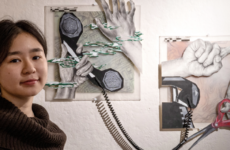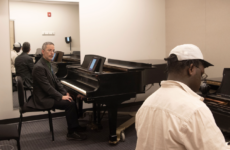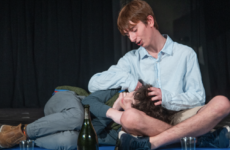Poetry is one of the forms of literature embodying the most creative freedom. In Choate’s diverse community, teachers and students engage in this form of literature both inside and outside the classroom, finding their connection with it and sharing it with others. Poetry, like many other art forms, can be a way to express oneself independently or in front of an audience — as seen in the upcoming language department poetry competition.
Many Choate language and literature teachers include poetry in their curriculums. For instance, one of the most important academic poetry events of the year is the 38th Connecticut Council of Language Teachers (COLT) poetry recitation contest in April. Language classes have already begun to prepare for the selection process. First, students taking foreign languages compete within their respective levels. Then, winners of each level proceed to represent the school at the state competition which consists of participants from first-year students to native speakers. The COLT competition supports an expansive variety of languages such as Polish, Hebrew, and sign language. Choate French teacher Ms. Anne Armour said, “I think, in terms of value, poetry is an art that most people can appreciate. It’s often left aside for more practical things like grammar or history. This competition reminds us to value it, and I think since pronunciation is hugely important in every language, it’s nice to have an opportunity to concentrate just on that.” Because of the short nature of poetry, it is usually easier to fit it into a curriculum than, say, a novel. Ms. Armour takes advantage of this aspect and of the competition to help her students learn about the components of the French culture and language unique to poetry.
In the English department, teachers often dedicate parts of the year to poetry along with novels and biographies. Due to its artistic nature, however, poetry can be taught in many different ways. English teacher Ms. Brooke Fichera explained, “I usually teach poetry by finding a poem that is compatible with the readings in class and that I think students would like to discuss and interpret. I use poems to teach literary elements like metaphors, and I try to get the students out of their comfort zone. In my creative writing classes, I do a much more focused study of poetry.” Ms. Fichera uses poetry to enhance her classroom discussions and hopes to incorporate more of it in her English literature classes.
English teacher Mr. Mark Gosztyla teaches a single term elective, Reading, and Writing Poetry. He said, “I approach poetry as playfully as I can in my classes because I think poetry should be enjoyed and students should have fun with it. I try to respond to everybody’s different backgrounds and sets of experiences, so I approach it like a playful investigation of the possibilities of words.” Mr. Gosztyla has unique views on the significance of poetry: “Poetry’s a memorable way of organizing information and history in pre-modern times. The way human brain works is through mnemonic devices and rhythm, allowing us to remember things easily. Poetry was a very early method of translating information from one culture to the next, and it is a meeting place of body and mind.”
Choate students engage in poetry along with faculty members. The SLAM! poetry club hosts bi-weekly meetings to discuss slam poetry with club members seeking to better understand the art form and find inspiration for their own work. When asked about her incentive for starting the club, Alex Alkhayer ’20, a co-president, said, “Slam poetry is a broad aspect of poetry, and it’s one that deserves to be fully explored. We hoped that by starting SLAM!, we could promote appreciation of and engagement in slam poetry.” Another co-president, Medina Purefoy-Craig ’20, shared her personal relationship with poetry: “My favorite thing about poetry is how extravagant some of the language can be. There are so many words in the English language, and there’s always a new way to describe something.”




